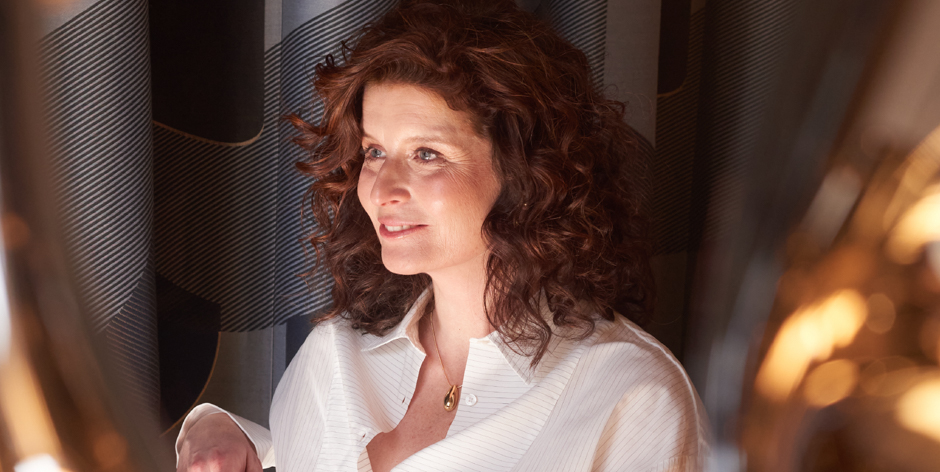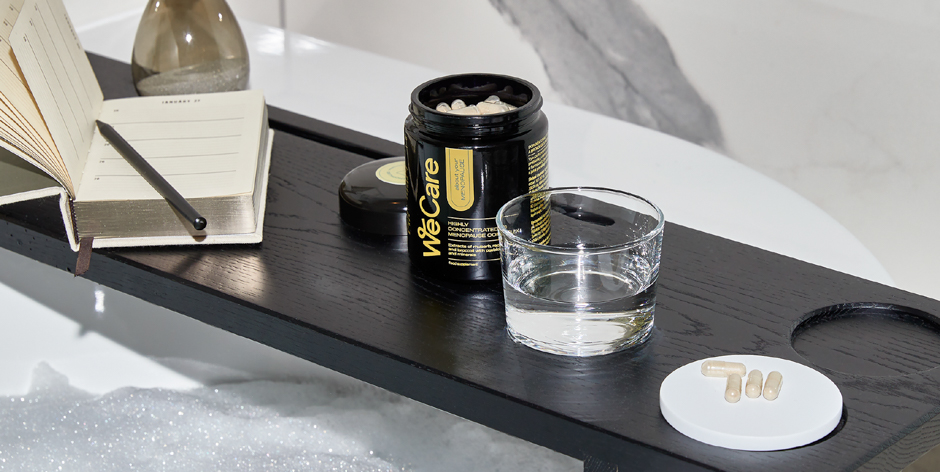How to fight back against menopause?

Medical professional talks about ways to battle and mitigate the symptoms of menopause.
When can I expect menopause to make an entrance into my life and how can I recognize its symptoms? Do I have to prepare for the worst or is it possible to mitigate its effects so that the experience can be as comfortable as possible? When are natural treatments sufficient and when should I reach for medication? The topic of menopause is treated like a scary folktale and thus plagued by many myths and questions. Let’s dive into them and discuss the truth behind each one.
A while back, we started the ‘Menopause is not taboo’ initiative on our socials. We wanted to open up and destigmatise a theme that women are often too afraid to talk about. And we are proud to have been a part in starting an open discussion that brought with it many colourful themes and questions. Therefore, to positively support and encourage the conversation we have invited MUDr. Veronika Klat Lattova, Ph.D., a gynaecologist with her own clinic in Olomouc. Her life’s mission is to care for and simplify the care for women and their individual ailments.
What are the most common symptoms associated with menopause?
“My clients most often suffer from hot-flashes, excessive sweating, sleeplessness. They also often complain of increased mental stress, dryness of the mucosa and decreased libido. One of the earliest harbingers of menopause, however, is an irregular menstrual cycle.”
Yet, all of that is still preceded by perimenopause. What does it mean?
This period of time in a woman’s life is defined by regular menstrual bleeding and a high enough level of oestrogen, but irregular bleeding starts to make itself known as a result of decreased levels of progesterone. Ovulation starts to become less common. This is a time that lasts on average around four years and gradually adds more symptoms as it progresses.
Does every woman feel the symptoms of menopause?
There are women among us that avoid experiencing the ailments associated with menopause altogether. This does not mean however, that they do not age and that menopause does not occur. Menopause comes for us all.
Will I be able to avoid menopause by taking birth control or if I have an IUD?
You will not recognize the symptoms of menopause while on hormonal birth control, it masks the symptoms. IUD’s have a huge advantage because most women with them do not menstruate at all or experience very light bleeding. The IUD stays effective even during the period of perimenopause. However, you may still experience spontaneous sweating and other symptoms. If this is you, try treating these symptoms with natural supplements. If they are ineffective even with the IUD already present in the womb it is possible to use oestrogen in the form of sprays or creams; these forms of application have the least side-effects.
Is it possible to distance the beginning of perimenopause and menopause?
Without the use of hormonal supplements, it is not possible to distance menopause. Its onset is usually hereditary and affected by our lifestyle, e.g., smoking or surgery on the ovaries.
I am currently experiencing menopause and I would like to know how to best get rid of hot flashes. Is menopause associated with a loss of sexual appetite and depression?
The most effective treatment for menopausal symptoms such as hot flashes, decrease in libido and mood changes such as depression, is targeted hormonal therapy. Most women however, due to fear of breast cancer, rejects this type of medication and leans on natural non-hormonal treatments. These can also positively affect your mental health. Endogenous depression should most definitely be treated by a medical professional such as a psychiatrist or psychologist. For a more positive sexual experience women need to have balance in their relationship and satisfaction in their own body. The ability to be able to accept yourself and the likely fact that your sexual life during menopause will not be better or even as good as when you were 20 is also very important.

Do hormonal changes cause weight gain?
Why are you losing muscle mass and gaining fat tissue? The loss of muscle mass is more likely caused by a decrease in physical activity and the weight gain by the slowing of the metabolism. On the other hand, reducing exercise is not required and thus it depends solely on us how much we are willing to move.
How to battle sleeplessness during menopause?
If the reason behind your sleepless nights are hot flashes, then natural supplements are an ideal remedy for you. I recommend those that contain red clover or black cohosh which is also known as black bugbane.
In what cases then are natural supplements sufficient and when should I reach for medication?
It is always preferable to begin with natural treatments. In the case that your symptoms remain you should consult your gynaecologist. The gynaecologist will weigh the risks and benefits of starting you on a hormonal therapy and prescribe accordingly. Hormonal therapy has its benefits; it protects women from developing cardiovascular disease and developing osteoporosis and of course noticeably mitigates the above-mentioned symptoms.
When should I reach out to a medical professional for help?
You should definitely contact your gynaecologist if symptoms appear before the age of 40; you could be experiencing premature ovarian failure. And then of course, when a woman is experiencing irregular bleeding or vasomotor symptoms that are cause discomfort.
Are there any preventative measures that I can take before menopause to decrease or mitigate its symptoms?
The onset of menopause is genetic, meaning that a definitive prevention does not exist. However, regardless of age or gender, we can maintain a healthy lifestyle through exercise, quality nutrition and mental wellbeing which will all help you to get through this trying time. Then, you can regularly take a whole plethora of dietary supplements that will be able to additionally help you and mitigate your symptoms. These treatments usually contain phytoestrogens which are the most proficient at battling menopause.
